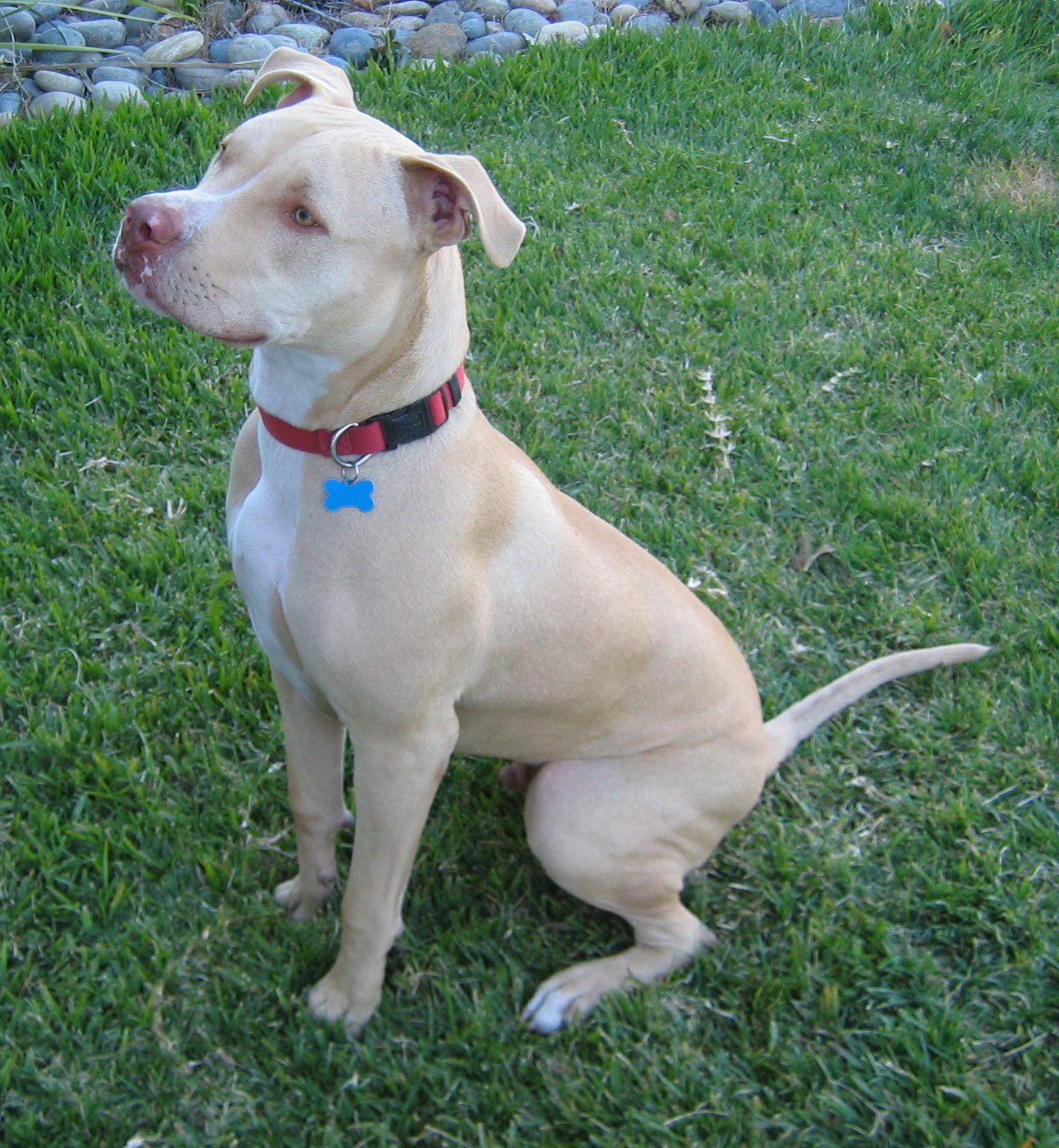Of all the breeds out there, the American Pit Bull Terrier (casually called the Pit Bull) has faced the most discrimination. Originally bred as an all-purpose breed that could hunt, herd, guard, and even pull a cart around the farm, the Pit Bull became a status symbol for many types of criminals and dog fighters. Because of a few poor choices (by people, not the dogs), the Pit Bull is the go-to when a dog needs to be blamed for an attack. The media is often the driving force behind the witch-hunting that goes on for this poor breed. A few years ago there was a news story about Pit Bulls attacking a young girl. Turns out they weren't Pit Bulls at all, but Alaskan Huskies. The media continued to call them Pit Bulls until they were corrected several times (by several sources). This isn't the only incident of its kind.
Most American Pit Bulls weigh no more than 78 pounds and stand no more than 24 inches high. This isn't actually the largest dog, though they are powerful. Some might think of the Pit Bulls as quite a large dog, but Pits that are larger than 24 inches at the shoulder have likely been crossed with another breed. They may even be American Bullies or another breed altogether. American Pit Bulls are medium-sized dogs with a more elegant appearance that you might think. Some are no larger than 14 inches at the shoulder. Certainly not a large breed by any measure.
Though not large, the Pit Bull is powerful, agile, and has the appearance of a dog ready for anything. They have a broad head and a well-defined neck (to carry that heavy head). The chest should be deep and well-sprung and the entire body should be muscular. This dog is definitely strong for its size and he'll let you know it. The ears are sometimes cropped, but this is becoming less common as cropping is not allowed in several countries. Tail docking is even rarer. When the tail is not docked, it should taper to a point.
The coat should be short, thick, and quite shiny. Because it is so short, buffing your Pit Bull with a chamois cloth is usually enough of a groom unless you companion happens to be a show dog. Even with the short coat this breed is classified as an average shedder. All coat colors are admissible, though some associations don't accept merle coats and there are even a few that will not accept a Pit Bull with blue eyes. Pits generally fall into two color categories--blue-nose and red-nose. Blue-nose Pits are shades of grey with a matching grey nose. Red-nose Pits are shades of red or brown with a matching red or brown nose. Both varieties are accepted by all associations.
The American Put Bull Terrier is driven by its need to please. This has, at least in part, led to its rather nasty reputation. A Pit Bull really wants to do what you want him to do, but if you aren't very clear about your expectations, he'll come to his own conclusions. This breed is highly intelligent, so as long as you're a strong leader and have communicated your expectations in a manner he understands, he'll be a loyal and friendly companion.
Highly protective, this dog will guard your children and property from any and all threats. With his high tolerance for pain, he can happily roughhouse with the children in your family, but remember that this dog has a clear vision of his 'pack'. Your own children may be perfectly able to roughhouse with your dog, but never let children who won't live with the dog on a daily basis play with the dog in this manner. Don't even leave them alone with the dog (or any dog, really).
Though great with children, the Pit Bull has a natural distaste for other animals. If they're raised with a cat or other pets, this can be managed, but always be aware that this dog likes people better. They do have a natural fighting instinct, but it's not so strong that it cannot be curbed with proper instruction and a clear set of boundaries when it comes to the behavior of you Pit Bull.
This is an active breed, so be prepared for long walks. They're even active indoors, so expect your Pit to bounce off the couch a few times. The American Pit Bull Terrier is generally healthy, but beware of hip dysplasia, congenital heart disease, cataracts, and a genetic allergy to grass in some lines. Ask your breeder about these problem prior to bringing a new Pit Bull into your life. Some of these problems are harder to deal with than others, and the grass allergy is really not fun for your dog.
Most Pit Bulls live a happy life as family pets, show dogs, or sporting companions. They can be excellent pets if they are raised right, so if you want a happy and loyal dog, you might want to consider the American Pit Bull Terrier.

No comments:
Post a Comment